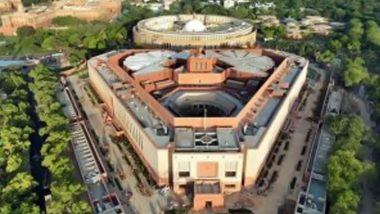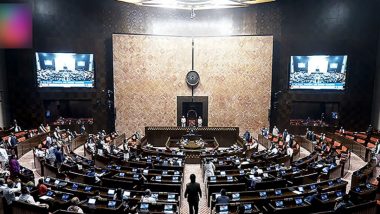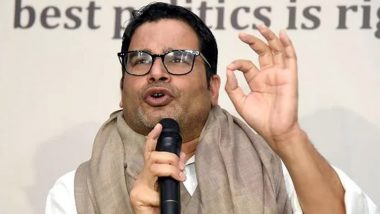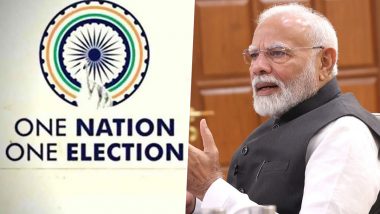Kolkata, October 17: Several eminent public personalities, educationists, academics and scholars endorsed and lauded the Union Cabinet's decision to grant approval for the Bengali language, as "classical language" calling it a "profoundly historic moment" for all Bengali speaking people. "The decision of the Union Cabinet to confer the status of Classical Language to Bengali on October 03, 2024, is a profoundly historic moment for all Bengalis and Bengali speaking people," the public personalities said in a letter on Thursday.
Recalling the author of "Bande Mataram" - Rishi Bankim Chandra Chattopadhyay, Pandit Ishwar Chandra Vidyasagar and other prominent personalities, the letter noted that these people dedicated their lives, energies and imagination to theenrichment and propagation of the Bengali language. "The Bengali language, which is more than a thousand years old, has evolved and flourished because of the sincere efforts made by many thinkers over a long time. Bengali is a vibrant and lively language," the letter said. Classical Languages List Expands: Marathi, Pali, Prakrit, Assamese, and Bengali Now Recognised by Union Cabinet Chaired by PM Narendra Modi.
"The author of "Bande Mataram" - Rishi Bankim Chandra Chattopadhyay, Pandit Ishwar Chandra Vidyasagar, Gurudev Rabindranath Tagore, Kazi Nazrul Islam and countless other creative minds and thought-leaders, through years of unremitting toil and persistence, have dedicated their lives, energies and imagination to the enrichment and propagation of the Bengali language. Our National Anthem is also composed in the Bengali language," it added.
The letter also further said that with time, the Bengali language has integrated dimensions of other languages within itself, and its scope has expanded. "Bengali literature has inspired countless people over centuries. The sweetness of this language touches our hearts. With time the Bengali language has also integrated dimensions of other languages within itself, and its scope has expanded. Bengalis across the world are delighted with this historic decision of the Government of India," it said. Union Cabinet Declares Pali ‘Classical Language’ Along With Prakrit, Bengali, Marathi and Assamese; Know Significance of Pali Language.
Eminent public personalities, educationists, academics and scholars extended their gratitude to Prime Minister Narendra Modi for giving the status of "classical language" to the Bengali language. "Our heartfelt gratitude to Prime Minister Narendra Modi, who is also the Acharya of Visva Bharati, Santiniketan, through whose sincere efforts the status of the classical language has been conferred on the Bengali language. We come together to laud this historic decision," they said in the letter.
The signatories of the letter included Professor Dilip Kumar Chakrabarti - Padma Shri, Eminent Historian and Professor Emeritus, University of Cambridge; Ambassador Bhaswati Mukherjee IFS (retd) - Former Indian Ambassador to the Netherlands and President, India Habitat Centre, New Delhi; Ambassador Asoke Kumar Mukherji IFS (retd) - India's FormerPermanent Representative to the United Nations; and others. The Union Cabinet on October 3, approved to confer the status of classical language to Marathi, Pali, Prakrit, Assamese, and Bengali languages.
Addressing the cabinet briefing, Union Minister Ashwini Vaishnaw said, "By now, we had Tamil, Sanskrit, Telugu, Kannada, Malayalam and Odia were the notified classical languages... The government is taking many steps to conserve and promote the classical languages and to preserve the rich heritage of these languages..."
A Linguistic Experts Committee (LEC) was constituted by the Ministry of Culture under Sahitya Akademi in Nov 2004 to examine the proposed languages for the status of classical language. The Government of India has conferred status of classical languages to Tamil in 2004, Sanskrit in 2005, Telugu in 2008, Kannada in 2008, Malayalam in 2013, and Odia in 2014.
(This is an unedited and auto-generated story from Syndicated News feed, LatestLY Staff may not have modified or edited the content body)













 Quickly
Quickly




















